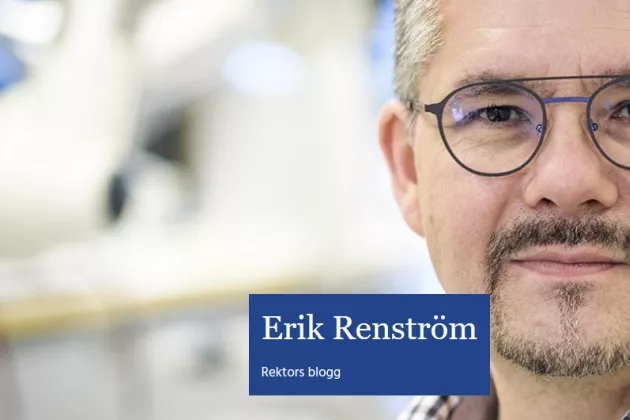Once again, we are now seeing an increase in the spread of infection, in particular in Europe; this week, the Public Health Agency of Sweden announced new recommendations to avoid crowding, among other things.
We are still offering on-campus education but everyone is to avoid crowding and large gatherings. We are carefully monitoring the situation and trying to keep the organisation updated on any developments now that the spread of infection is increasing and more recommendations or restrictions may soon be announced.
The possibility of using vaccination certificates at public events and gatherings has also been introduced. If needed, Lund University may introduce the use of certificates at public events and large gatherings such as Christmas concerts or other events attended by the general public.
Sweden’s most important strategy is for as many people as possible to be vaccinated to avoid people becoming seriously ill and to reduce the spread of infection.
However, there is another major problem with vaccination certificates. As these are increasingly used in the community for concerts or other events, an important group has ended up in a no-man’s land. These are all the international students and researchers who come to Sweden and to Lund University.
People who were fully vaccinated in their home countries outside the EU (in the USA, Japan or Australia, for example) can enter Sweden with their proof of vaccination. However, these documents are deemed to be invalid for attending various gatherings and events once in Sweden. Another concern is that of citizens from other countries who have been vaccinated in Sweden, but subsequently cannot get proof of vaccination because they lack a Swedish personal identity number or coordination number. There are also problems for people who received their first dose of the vaccine in their home country and their second in Sweden. They have also been unable to get proof of vaccination.
Together with the chair of the municipal council in Lund, Philip Sandberg, I have now raised the issue with the Swedish eHealth Agency (e-hälsomyndigheten). It is extremely urgent to speed up the technical solutions that the eHealth Agency is working on and complete them soon.
'Lund is one of the most international cities in Sweden and Europe. Lund University is a top-ranked higher education institution with many international contacts. There are many companies and research teams in the region which are dependent on international exchanges and trade. Despite being vaccinated and assuming their responsibility for reducing the spread of infection, a large group is now denied the same opportunities for free movement and social contact as all other vaccinated people. I am hoping for a quick solution!
Erik Renström, Vice Chancellor of Lund University
Erik Renström received an answer from the Swedish eHealth Agency (e-hälsomyndigheten):
Answer from the Swedish eHealth Agency (e-hälsomyndigheten):
"Swedish citizens and other long-term residents of Sweden who have been vaccinated in a third country:
The eHealth Agency has been tasked by the government with investigating and proposing a solution for this group as well. The question of which national agency is to verify the authenticity of vaccination certificates from third countries is being examined by the Government Offices of Sweden; the ambition is to solve this before the turn of the year.
Exactly as you wrote, there is a difference between the regulations for entering Sweden, when all three types of Covid-19 certification are valid, and the use of vaccination certificates as a preventive measure against infection at public gatherings and events involving more than 100 people, which was introduced on 1 December.
The eHealth Agency, together with the Agency for Digital Government (DIGG) developed the Covid-19 certificate service in a very short time. The eHealth Agency has currently issued around 9 million Covid-19 certificates to around 4.9 million separate individuals since 1 July when the service opened.
Based on the circumstances, we prioritised the largest groups first, i.e. vaccination certificates for people with a Swedish personal identity number or coordination number who were vaccinated in Sweden with one or two doses, as well as solutions for caregivers of children under 16 with a Swedish personal identity number and people with a Swedish personal identity number who have an appointed guardian. We have also launched a manual solution for people who are unable to use electronic identification.
As I have explained above, intensive work is ongoing to further develop the service for the remaining groups based on the technical, legal and information security aspects.
One positive element is that the EU’s digital Covid-19 certificate is now well on the way to becoming a global standard. Currently, the 27 EU member states and a further 25 countries adhere to the system."
Kind regards,
Erika Burlin Hellman
Communications manager
eHealth Agency


